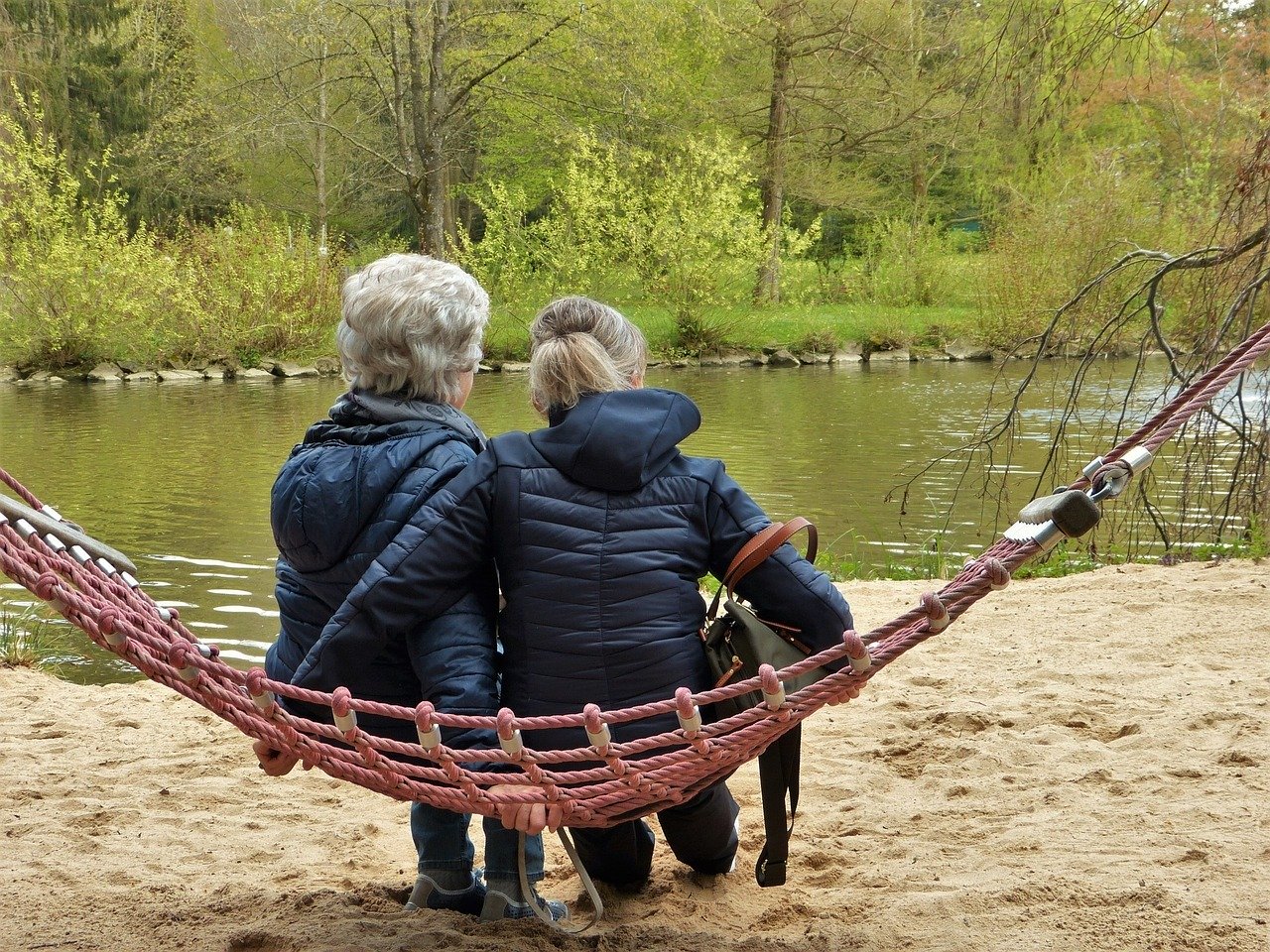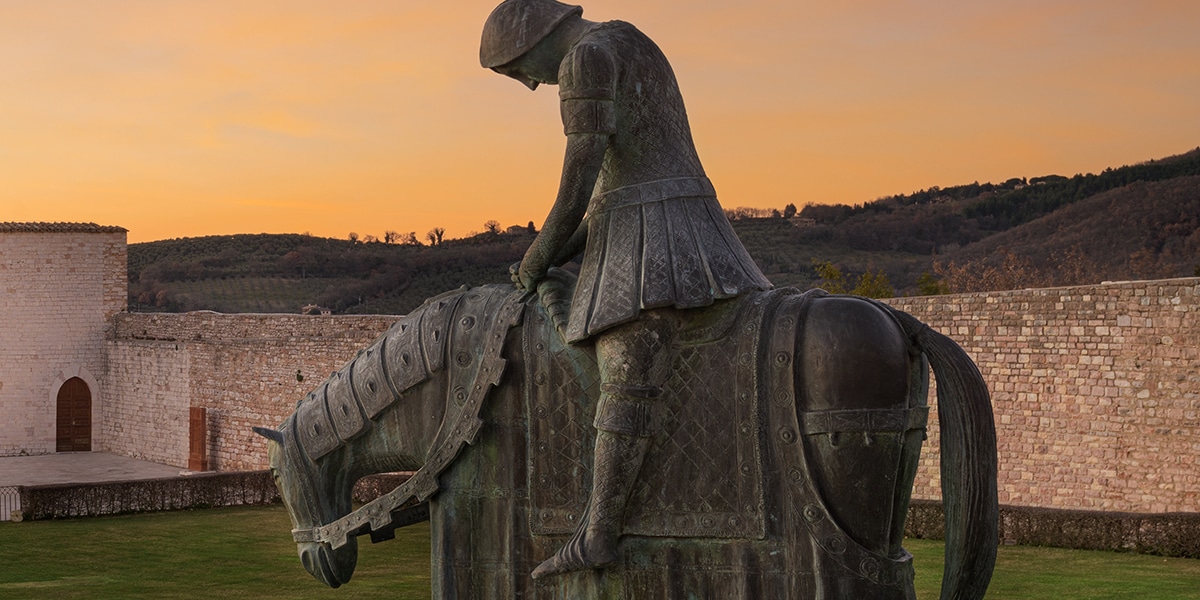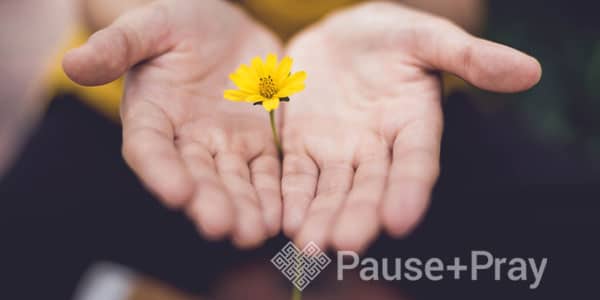Eight days before our mother died, on April 4, 2011, we finally heard the truth. Or rather, the truth had finally been spoken to us in a clear, concise, and unvarnished manner.
Prior to that afternoon, Mom, Dad and we 11 children had each been living privately with the truth of Mother’s illness nibbling away at our minds. Only rarely did we acknowledge to one another where these diseases generally lead: to the church cemetery.
To speak of death aloud would have been a betrayal to our mother. Instead, by way of tacit agreement, an unspoken understanding developed among us an agreement that occasionally prompted us to make secretive and worried eye contact in a way that neither Mom nor Dad would detect.
We were in the fourth week of Lent when truth arrived a little over halfway through the miseries and mysteries and we would not realize until after her death that we were about to experience the most honest Lenten preparatory time of our lives, the holiest and most profound Easter and, most of all, a glimpse of Pentecost. But before those many graces were poured over us, we dug in our heels. Firmly. Resolutely. Nobody goes willingly to a cross. Even the disciples argued vehemently against it. And so, for 20 months, we tiptoed around the truth in a sort of dream state, praying that truth would not rise up and find our ears.
Rage Against Death
Each of Mother’s medical appointments found any three of my sisters sitting on the white-papered examining tables their feet dangling and swinging like kindergartners while the other girls took the chrome and vinyl chairs on the floor next to Mom and Dad. Our brothers stood and constantly blocked the entrance so that doctors and nurses had to continually apologize in order to squeeze into the room.
Once the doctor entered the room, whichever of our brothers had been seated on the doctor’s rolling stool would relinquish the stool immediately and stand red-faced in the corner while we girls rolled our eyes.
The doctor would ask Mother how she was. She always said, “Fine, ” to which he predictably smiled in return, patted her knee and then turned away from us to peer at his computer screen. Meanwhile, we became adept at deciphering nonverbal cues sent zinging across the tiny medical cubes into which our family of 13 had poured ourselves.
Nobody talks plainly anymore. And nobody has the courage to ask plain questions. For 20 months we wanted to ask, “How long until our mother dies? ” And yet, for 20 months, none of us, especially Mom, wanted to know. She refused to consider death. So for 20 months we toured limbo until the brutality of truth spewed over us on April 4, 2011.
The shattering of our defenses occurred during Mother’s last appointment at the Coburn Cancer Center in St. Cloud, Minn. And we were mad as hell. Why hadn’t they told us sooner? Perhaps we would have been kinder had we known how loudly the clock was ticking.
Oncologists had been vague about her prognosis. Diagnosis, on the other hand, was always crystal clear. After all, a picture is a picture, and Mother’s lungs were taking on a rather polka-dotted look. Her doctors seemed to love their laptops, preferring to study her uploaded image rather than look into our mother’s sad blue eyes.
Not Enough Time
In fairness to the doctors they were brilliant men we may have intimidated them each time we tromped into their offices. And I do mean tromp.
Did the disciples tromp? Were they clumsy? Did they not want to cheat death? Did they not pray for divine intervention? Did they embarrass Jesus the way we surely embarrassed our poor mother by asking silly questions, presenting Wikipedia printouts about cancer in case we had better ideas than they?
Our mother was not embarrassed by the number ofoffspring she and Dad produced. No, our mother was embarrassed by our occasionally uncouth behavior: Even though we were all in our 40s and 50s, we often acted like children. Too loud, often obnoxious, always sarcastic, emotional, superstitious, religious these traits we got from Dad’s Irish blood.
None of it was Mom’s fault. Yet she still, even while facing death, had to shush us or lower her eyebrows and send her special glare across the room while still clinging to her desire that we might all get along. I wonder if Jesus ever wanted to say, “I have enough on my hands without everyone quibbling! “
But the truth that arrived on April 4, in the fourth week of Lent, slapped all that silliness out of us. The words we finally heard were these: “You will see a rapid decline in the next week. Two weeks at the most. “
That’s it? Are we really approaching Jerusalem? Is there no time left for side trips? Where has our hope fled? When the disciples finally understood the truth of the Lord’s mission, did they too double over in anguish? Did they wish they had made better use of their time with him?
‘I Will Remember You’
Our tears had been soft and silent. We sniffled as our mother’s hymns plucked at our souls: “Jesus, remember me when you come into your kingdom. ” Quiet came upon us and darkness fell. On the second night of the vigil, Mother was still breathing, though with increased difficulty.
We were limp with sorrow and exhaustion. We began touching one another more; perhaps that was what our mother had been waiting for. Pats on the back morphed into sideways shoulder hugs.
Then, late into the evening, an unexpected song came from the iPod. I was sitting on the sofa three feet from Mom’s bed. My sister Erin sat on my left; my sister Dena to my right. My sisters Mary, Cindy and Annie stood at Mom’s side. Our brothers stood just behind the sofa with their hands inches from our shoulders.
I audibly choked when the unexpected song began ever so softly. The first words of Sarah McLachlan’s song “I Will Remember You ” filled the room: “I will remember you. Will you remember me? ” After that first choke escaped my throat, Erin and Dena immediately dropped their heads onto my shoulders, and the three of us began weeping and gasping with an enormous unleashing of misery.
The sobs were loud, meaningful and painful. When I tried to catch my breath (and found that I could not yet stop weeping), I saw around me that all my brothers and sisters, their spouses and my father all of them were bent over now with racking sobs. The dam had burst. Noses were running freely. The girls passed wads of tissues. The guys rubbed their shirt-sleeves over their faces.
It lasted 10 minutes. Finally, we were wrung out and emptied of all inhibitions so that we could now cling to one another, which is what we had wanted to do for so long. We loved one another.
When I looked around the softly lit room and saw each ravaged face, the adulthood of each of my siblings melted away. I saw them again with the face each carried in childhood. There they were my little sisters and little brothers so dear, so loved.
Jesus did not die alone. They stood weeping at the foot of the cross. They looked over at one another and, without words, understood the depth of their shared loss. Together, they each lifted the burden of one another’s grief. We were sisters and brothers dear and beloved.
Finding Peace
Shortly after midnight, in our 50th hour, Mother took her last breath. I stood at her feet, but without tears. Something else was in the room with us: a great and wonderful presence. Peace enveloped us. We breathed it in and out. It brushed against us and passed among us. It was unspeakably gentle and soft.
Everyone was quiet. Dad let out a quiet little whimper and then began whispering his Hail Mary. The first to speak aloud was one of our youngest brothers, Jimmy, who said, “That wasn’t anything like I thought it would be. ” We all nodded.
It was at that moment that I knew God is real; resurrection is real. Although our mother’s worn body had finally given out, she was still there, fully there, at ease, filled with peace and moving among us. And the tiny apartment grew even more crowded as Mother embraced Our Lord, Our Lady and all the angels and the communion of saints.
In the days to come, we did what everyone must visit the funeral home, choose a casket, plan the liturgy. After all the visitors left town, we siblings gathered once more in Mother’s apartment. Many times one of us would stand and put on our coat and say, “I better get going back to the city now, ” and the others would nod sadly.
We would make for the door and then turn back. No one could bear to leave. In a flash I spotted the disciples dragging their feet in the upper room and understood for the first time that their hesitance to leave that room was not fear or lack of courage. It was love.
In their shared journey of death, reconciliation and resurrection, a love had grown profoundly among them unlike any love they had ever known. They wanted to simply live in it forever.
Be Not Afraid
Six days passed after the truth was spoken, and yet Mother seemed no worse. We toyed with the idea that the doctors had made a mistake. Surely they’d exaggerated. Then, on the seventh day, a Sunday, she suddenly lapsed into a semicomatose state.
We immediately focused. We came together. For the next 50 hours, we never left her side. We crowded into her living room made even tinier by the hospital bed now situated center stage. During the night many of us lay on the floor around that narrow bed, each with one hand raised over our heads to touch her toes.
She was never without many hands stroking her legs, feet, forehead, face, hands and arms. Her once-luxurious auburn hair was now silken wisps, and we couldn’t keep our hands off it. Her favorite hymns played continually from someone’s iPod and we sang along on the refrains, hoping the lyrics were true that we should not be afraid.
We had moved the overstuffed easy chair and footstool alongside her bed. Our aging father eased his body into the chair and raised his aching legs to the footstool. And there he took up his post for 50 hours his rosary clasped in his right hand, mother’s limp hand in his left.
During our first overnight, no one slept because hospice warned us the time was near. By morning our eyes looked like those of raccoons. Strong coffee was brewed around the clock. Fueled by caffeine, nicotine, sugar and serious sleep deprivation, our nerves began to fray. Fear nibbled away until our second day of the vigil. We knew our mother was growing weaker by the minute, and our claws came out.
Feelings were hurt, overlooked, exaggerated or ignored. Some could not bear the idea of not giving her food, and so we tried drizzling thinned soup or coffee into a throat that could no longer swallow. Others objected in panic, afraid that she would choke or be burned. We were turning ugly as we waited for death. Our anger at death was directed at one another; our weariness and fear began to manifest themselves in small arguments.
Compounding grief, we had not only crowded our physical selves into that tiny apartment, but also brought with us our luggage. For the first eight or nine hours of our vigil, we had been overwhelmingly kind to one another and we ignored all the baggage or tiptoed around it.
But as fatigue and dread set in, we began tripping over the debris of our past mistakes. We began carping under our breaths so that Dad would not hear. Did the disciples bicker? Or, as Jesus hung on the cross, did they suddenly forget all that they had disagreed upon up until that moment? Forgetting all their differences, did they finally become one in love?








